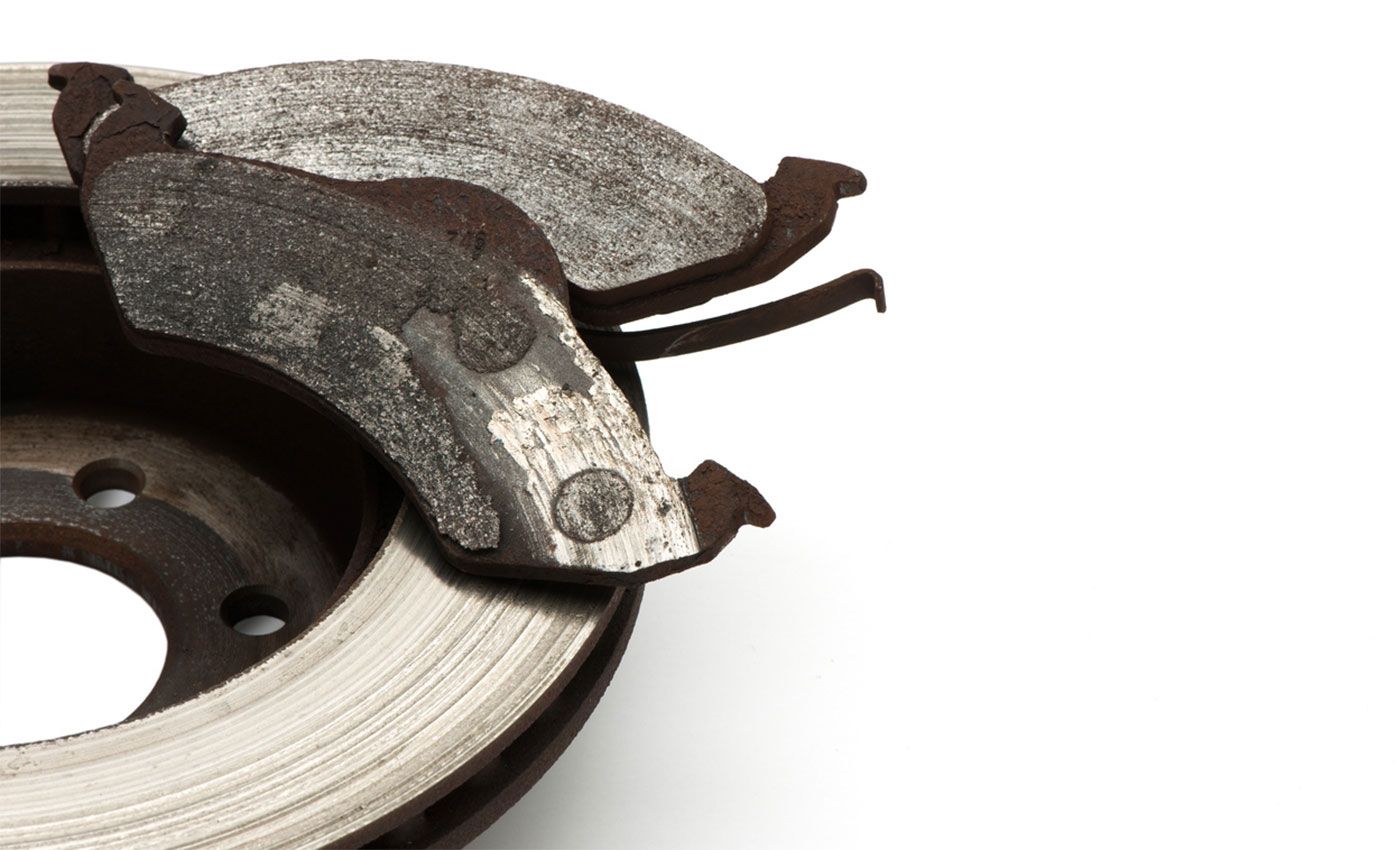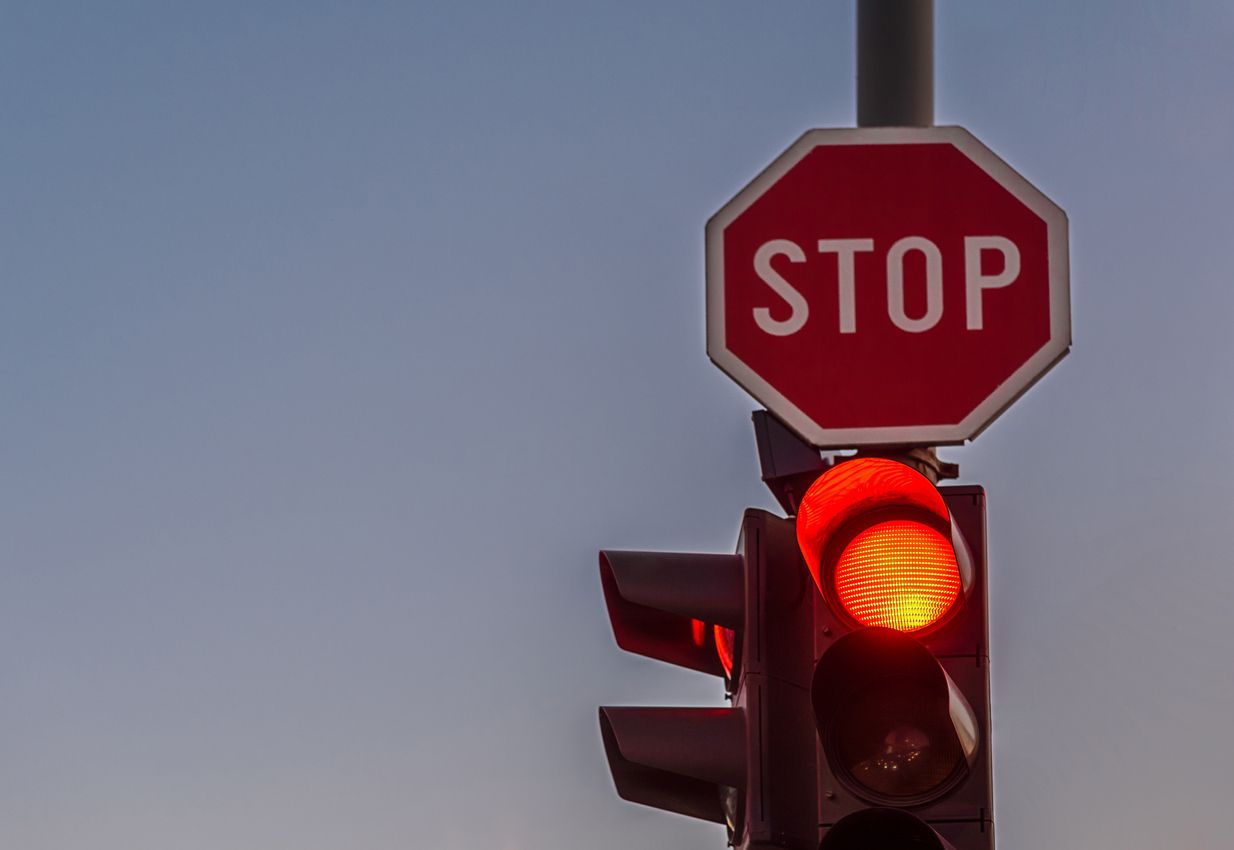
All or One: Should You Replace All Brake Pads At Once?
Can you replace just one set of brake pads? Answer that question and more as you learn why braking system maintenance is crucial for safety and performance.
Read More
Grinding, squeaking or squealing brakes can indicate a problem with your car’s brakes that should be addressed. Other signs of brake problems include your brake pedal feeling spongy, a shaking steering wheel, longer stopping distances, or a lit up brake light indicator on your dashboard. If you've noticed any of these common signs of brake problems, bring your car into Firestone Complete Auto Care. Your brakes help you safely avoid collisions with other objects or vehicles on a daily basis and you must take care of this critical component of your car.
For a free brake check, come into your neighborhood Firestone Complete Auto Care store. We have more than 1,700 locations across America staffed by Firestone Complete Auto Care tire and auto service professionals. We’ll get to the bottom of what’s causing your vehicle's brake problems to keep your car running newer, longer.
Are your car brakes grinding? Grinding car brakes can be a sign that the ceramic or semi-metallic brake pads have worn down to the metal backing plate, which is now grinding against the metal of the brake rotors. If worn brake pads are not replaced in a timely manner, you run the risk of damage to the rest of your brake system including brake rotors and calipers. Therefore, if you hear a grinding noise when braking we recommend getting a brake inspection immediately.
Some brake manufacturers install a warning mechanism that emits a squeal when the brake pads are worn to the point that they need to be replaced. The sounds of brakes squeaking can also be a result of the brake material interacting with extreme temperatures or humidity. Whatever the case, our expert technicians can determine why the brakes are squeaking and repair the issue.
A shaky steering wheel can indicate your brake rotors have become worn down or warped. Brake rotors, which are exposed to extreme heat, wear out over time and need to be resurfaced or replaced. Firestone Complete Auto Care Tire and Auto Service Professionals assess the health of your brake rotors during the free brake check.
When you press down on the brake pedal, does it feel spongy and soft? Spongy brakes are an indication that air is present in your brake fluid, and the brake fluid needs to be bled, or removed of air. A brake fluid change will likely be part of the process to fix soft brake pedal problems
Dashboard warning lights are a quick and clear way to know if you have certain car safety issues from the moment you start your vehicle. Your brake warning light will turn on when there’s certain problems with the brake system, or if your parking brake is engaged. In the case of a brake system problem, turn off your car’s engine and call a mechanic right away to have it transported and repaired. If your brake warning light illuminates while you are driving, pull over on the shoulder of the road, or into a nearby parking lot, and give yourself plenty of time and space to stop the vehicle, then call a mechanic for repair.
Brake warning lights should always be taken seriously, because they warn you about major brake system problems that could prevent you from stopping your vehicle. You should always pay close attention to all dashboard warning lights—it’s very important for your own safety and helps you quickly address critical vehicle problems. Be certain your dashboard warning lights are functioning every time you drive by making sure they all illuminate on start-up. If you notice any dead lights, bring your vehicle in for a bulb change or electrical repair so you can continue to stay safe on the road.
If you have any of the tell-tale signs of brake problems, it may be time to bring your car in for a brake check. At Firestone Complete Auto Care, our skilled technicians will perform a free brake check, which involves checking the brake pads, shoes, rotors, drums, hoses and fluid. What will your brake repair look like? Read more about our most common services and repairs below.
Today’s cars use a hydraulic braking system. Brake fluid transfers and amplifies the pressure of your foot on the brake pedal to the rest of the brake system to stop your vehicle. It also has anti-corrosive properties to keep the brake system maintained. Brake fluid can lose its protective qualities over time and/or become contaminated, so brake fluid changes are valuable to prevent erosion of key brake components in your vehicle. Here’s what you need to know about brake fluid to stay on top of your car’s maintenance.
How often do I need to get a brake fluid change?
The most important thing you can do is bring your car in as soon as possible if you notice any brake problems. Some manufacturers make recommendations on when to have your brake fluid exchanged, but if yours doesn’t specify or you want to make sure your brake fluid is still protecting the brake system, it never hurts to check! A good rule of thumb is to request a free brake check—which includes a brake fluid check—alongside other common services like tire rotations and oil changes.
What are the signs I need to get a brake fluid change?
If your dashboard brake light is on, it can be an indicator your car’s brake fluid supply is low. Other signs that it’s time for a brake fluid change include spongy and soft brakes. We use the industry-approved method of testing copper content to check the quality of your brake fluid and determine whether it’s time for a change. Additionally, your vehicle manufacturer may have recommendations on when to change your brake fluid.
What is a brake fluid exchange and why do I need it?
Brake fluid exchanges completely replace your vehicle’s old brake fluid with new brake fluid. It’s important because brake fluid exchanges allow your technician to completely clean out old fluid that may not be protecting the brake system anymore. A brake fluid exchange refreshes your car’s braking system and ensures it’s performing at its best.
Any time you stop your car, you rely on your brake pads. Brake pads create friction with your car’s brake rotors (the gear-like part connected to each wheel) to slow your speed. Brake pads will wear over time, so it’s important to replace them as needed .
How often do I need to replace my vehicle’s brake pads?
Brake pads wear down over time with use, but it’s your brake pad’s minimum thickness, which varies by manufacturer, that ultimately determines when you need a replacement. While there is a range of miles brake pads are expected to last, the best advice is to get the pads measured especially if you are hearing noises, have noticed increased stopping distances, have had an inspection recommended by a technician, or you just want the peace of mind of knowing. Measuring the life left on your brake pads will let you know if they need to be replaced or if they are close to needing replacement.
What are the signs I need to replace my brake pads?
Brake squealing or squeaking are typically clear indicators of worn brake pads. You should also watch out for a spongy brake pedal, a shaking steering wheel, longer stopping distances, and a lit up brake light indicator on your dashboard. When you notice these signs, try to schedule an appointment as soon as possible. If you put off brake pad replacement for too long you risk further damage to your car’s brake system—which could mean a more serious, costly repair.

Can you replace just one set of brake pads? Answer that question and more as you learn why braking system maintenance is crucial for safety and performance.

It’s terrifying when your brakes lock up. Learn the potential causes of brakes locking up while driving, how to prevent it in the future, and how to react when they do.

Brakes not slowing you down as they used to? Don’t let the unthinkable happen! Discover the common causes of brake lag, their symptoms, and how to resolve them!